https://vimeo.com/1047355773 Dominating the headlines over the last week or so, the utter devastation from the LA fires has been heartbreaking to watch. The loss of life and homes has been painful to witness from afar, and some fires still burn due to excessively high winds. What turned out to be a fairly innocuous Contractor Spotlight Read more
Featured Articles

Dominating the headlines over the last week or so, the utter devastation from the LA fires has been heartbreaking to watch. The loss of life and homes has been painful to witness from afar, and some fires still burn due to excessively high winds. What turned out to be a fairly innocuous Contractor Spotlight, our interview with Yossi Wachtel, owner of Monkey Wrench Plumbing in Los Angeles just got personal.
You can read the Spotlight here:
Contractor Spotlight: Monkey Wrench Plumbing, Heating, Air and Electric—Community First
Podcasts:

What started as a fairly innocuous Contractor Spotlight turned into something much deeper. For Yossi Wachtel, president of Monkey Wrench Plumbing, Heating, Air & Electric, Los Angeles, the impact of the LA fires just hits different. “When the fire started, our typically overbooked dispatch board dropped to 25% capacity, but Los Angeles will rebuild so Read more
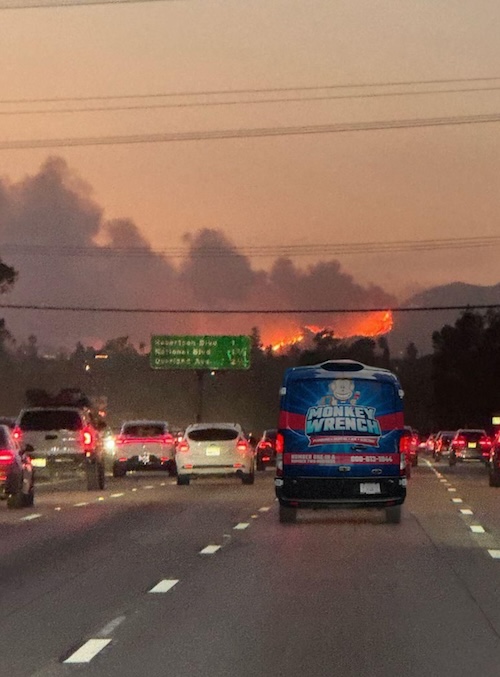 What started as a fairly innocuous Contractor Spotlight turned into something much deeper. For Yossi Wachtel, president of Monkey Wrench Plumbing, Heating, Air & Electric, Los Angeles, the impact of the LA fires just hits different. “When the fire started, our typically overbooked dispatch board dropped to 25% capacity, but Los Angeles will rebuild so that’s not what keeps me up at night. What really shakes me is hearing a customer say, ‘Why fix the plumbing when we might not have a house to come back to?’ That’s not just a cancelled appointment, that’s a neighbor facing the unthinkable,” says Wachtel.
What started as a fairly innocuous Contractor Spotlight turned into something much deeper. For Yossi Wachtel, president of Monkey Wrench Plumbing, Heating, Air & Electric, Los Angeles, the impact of the LA fires just hits different. “When the fire started, our typically overbooked dispatch board dropped to 25% capacity, but Los Angeles will rebuild so that’s not what keeps me up at night. What really shakes me is hearing a customer say, ‘Why fix the plumbing when we might not have a house to come back to?’ That’s not just a cancelled appointment, that’s a neighbor facing the unthinkable,” says Wachtel.
Monkey Wrench’s service area—Pacific Palisades, Santa Monica, West Hollywood, West LA, Altadena—has been affected. “These aren’t just dots on our dispatch map, they are homes where we’ve fixed leaks, installed water heaters, and built relationships over years. Now many of those same homes are in harm’s way. These aren’t just statistics on a news report. These are people we live with, shop at the same supermarkets with, go to the gym with, and work with.”
But what really matters to Wachtel is that Monkey Wrench is a community business, and right now the community needs something different than plumbing services. They need support, resources, and reassurance. “So, while our phones might be quieter today, our commitment to this community has never been louder. We’re here for whatever our neighbors need—whether that’s emergency plumbing assistance or just someone who knows the area and can point them toward help. This isn’t about business anymore. It’s about being there for our community when they need us most. To all our customers, employees, and fellow Angelenos: Stay safe. Material things can be replaced, lives cannot,” says Wachtel.
The Spotlight
Yossi Wachtel’s path to plumbing was anything but traditional. After studying in rabbinical college in Australia, Wachtel found himself drawn to the trades through construction work. What started as painting closets evolved into a fascination with the mechanics of plumbing. In 2007, Wachtel moved to California and founded Monkey Wrench with just one truck. Today, we operate nearly 50 trucks and employ around 100 team members, serving residential customers throughout Los Angeles.
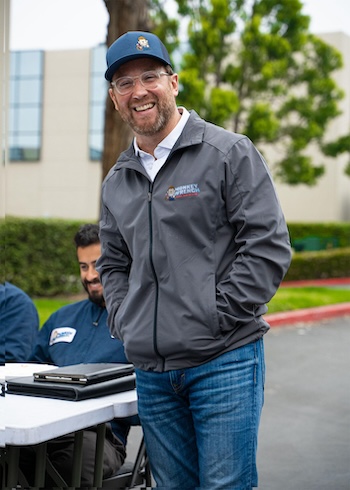 “I discovered plumbing in my late twenties while working in property management. What captivated me wasn’t just the technical aspects; it was the opportunity to be someone’s hero. Every call was a chance to solve problems and make a real difference in people’s lives. After three years learning the trade, I took the leap to start my own company,” recalls Wachtel.
“I discovered plumbing in my late twenties while working in property management. What captivated me wasn’t just the technical aspects; it was the opportunity to be someone’s hero. Every call was a chance to solve problems and make a real difference in people’s lives. After three years learning the trade, I took the leap to start my own company,” recalls Wachtel.
Wachtel has always had that eye for business. “I’ve always been entrepreneurial—I started my first business at age seven,” says Wachtel. “But with plumbing, I saw a clear need for professionals who could deliver exceptional customer service.”
And, because Wachtel is an ordained rabbi, he uses what he’s learned in his plumbing business. “While I chose plumbing over rabbinical work, I still apply those teachings about ethics and service to others in how we run our business.
The Narrative, Reworked
According to Wachtel, and many others enjoying a career in the trades, college isn’t the only path to success. He says that the trades offer an incredible opportunity to build a rewarding career without student debt. “At Monkey Wrench, we have technicians earning six-figure incomes, and more importantly, they’re making a real difference in people’s lives. Plus, you’ll never have to worry about your job being outsourced or replaced by Artificial Intelligence,” says Wachtel.
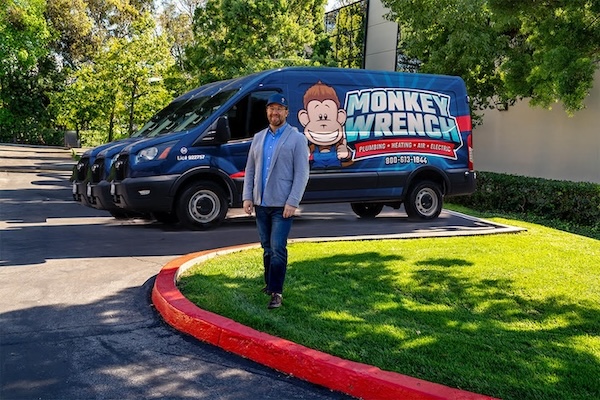
According to Wachtel, the industry should partner more with high schools, create clear career advancement paths, showcase modern technology and tools, highlight success stories and emphasize the entrepreneurial opportunities. “We need to change the narrative about trade careers. It’s not just about unclogging toilets—it’s about problem-solving, using advanced technology, and helping people.”
Mentor and Relation Ships
Wachtel says that his greatest mentors have come through Nexstar Network. “They taught me that being a great plumber isn’t enough; you need to be a great business person too,” says Wachtel.
Not only did Wachtel find mentorship through Nexstar, he says that joining Nexstar was a game-changer for us. “I made a significant investment in that first-year membership when I could barely make payroll—it was terrifying but turned out to be the best decision I’ve ever made. Continuous education isn’t just important; it’s essential. The industry evolves constantly, and if you’re not learning, you’re falling behind.”
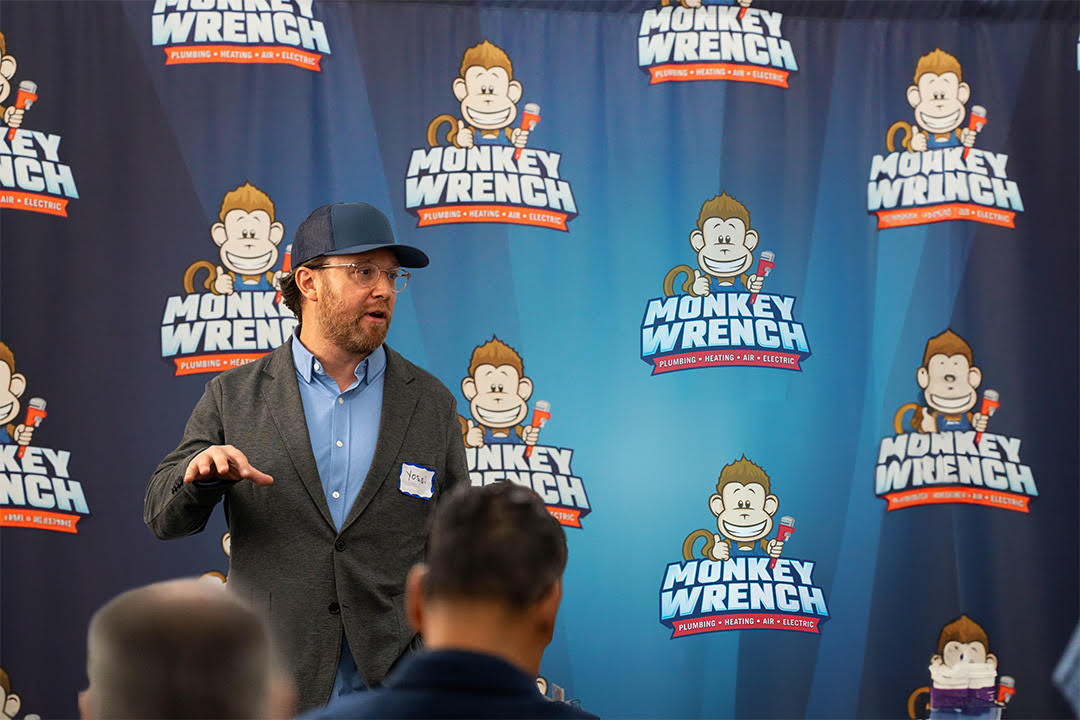
Today, he’s passionate about mentoring others, especially through the company’s developing trade academy, which would help young people discover and develop their potential in the trades. Wachtel says it’s becoming the next big mission at Monkey Wrench. “Nothing brings me more joy than seeing our team members buy their first homes or achieve personal milestones through their careers with us.”
The biggest challenge is finding the right people who share the vision for exceptional service. But for Wachtel, the rewards far outweigh the challenges. “Recently, one of our employees became the first person in three generations of his family to buy a home. Those moments—seeing our team members grow and succeed—that’s what makes this all worthwhile,” says Wachtel.
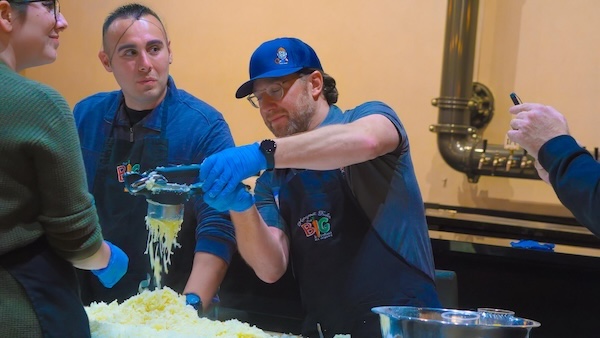
In fact, one of Monkey Wrench’s team members celebrated their 10-year anniversary with the company. “These milestones remind me why we do what we do. It’s about creating opportunities and changing lives through this amazing trade,” says Wachtel.
While Wachtel is proud of the community he’s created at Monkey Wrench, the company is in good hands. Both of Wachtel’s sons work for the business—one is the Operations Manager, and the other works in the marketing department. “It’s incredible watching them grow into their roles and bring fresh perspectives to the company. While I hope they’ll continue the legacy, I want it to be their choice. They need to earn it and want it,” says Wachtel.
Wachtel’s Top Tips for Starting a Business
• Perfect your craft before going solo
• Join a best practices organization (it changed everything for us)
• Focus on building systems, not just fixing pipes
• Invest in your people’s growth
• Stay true to your business model—avoid the temptation of “shiny objects”

https://vimeo.com/1044815145 Most of the country is experiencing a cold snap, extending its way as far south as Texas. In the northern climates snow and an icy grip has taken hold. And while it’s great for the plumbing and heating techs and installers, be careful out there and take the precautions to perform your job effectively Read more
Most of the country is experiencing a cold snap, extending its way as far south as Texas. In the northern climates snow and an icy grip has taken hold. And while it’s great for the plumbing and heating techs and installers, be careful out there and take the precautions to perform your job effectively and safely. On this weekly update we’ll talk outer wear, Trump 2.0, new podcasts, and did you know that today is quitting day?
Trump 2.0
Heat Pump Water Heater
Podcasts
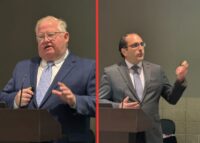
Um, yeah. With Trump ready to assume the role of President for his second term, albeit not consecutively, other than the renaming the Gulf of America, how much can we “read the room” as to changes in policies, rhetoric or general feeling moving forward to things that relate to the PHVAC industry? We recently caught Read more
Um, yeah. With Trump ready to assume the role of President for his second term, albeit not consecutively, other than the renaming the Gulf of America, how much can we “read the room” as to changes in policies, rhetoric or general feeling moving forward to things that relate to the PHVAC industry? We recently caught with Mark Velentini, VP of Legislative Affairs at the PHCC-National Association, and Charles White, VP Regulatory Affairs at the PHCC-National Association—affectionately known as the “Chuck & Mark Show” by the PHCC—as they have their finger on the pulse of DC.
MH: We can kind of gauge what sort of policies/governance may come out of Trump’s term based on his first term, but how do you think the second time around will affect the plumbing industry in general?
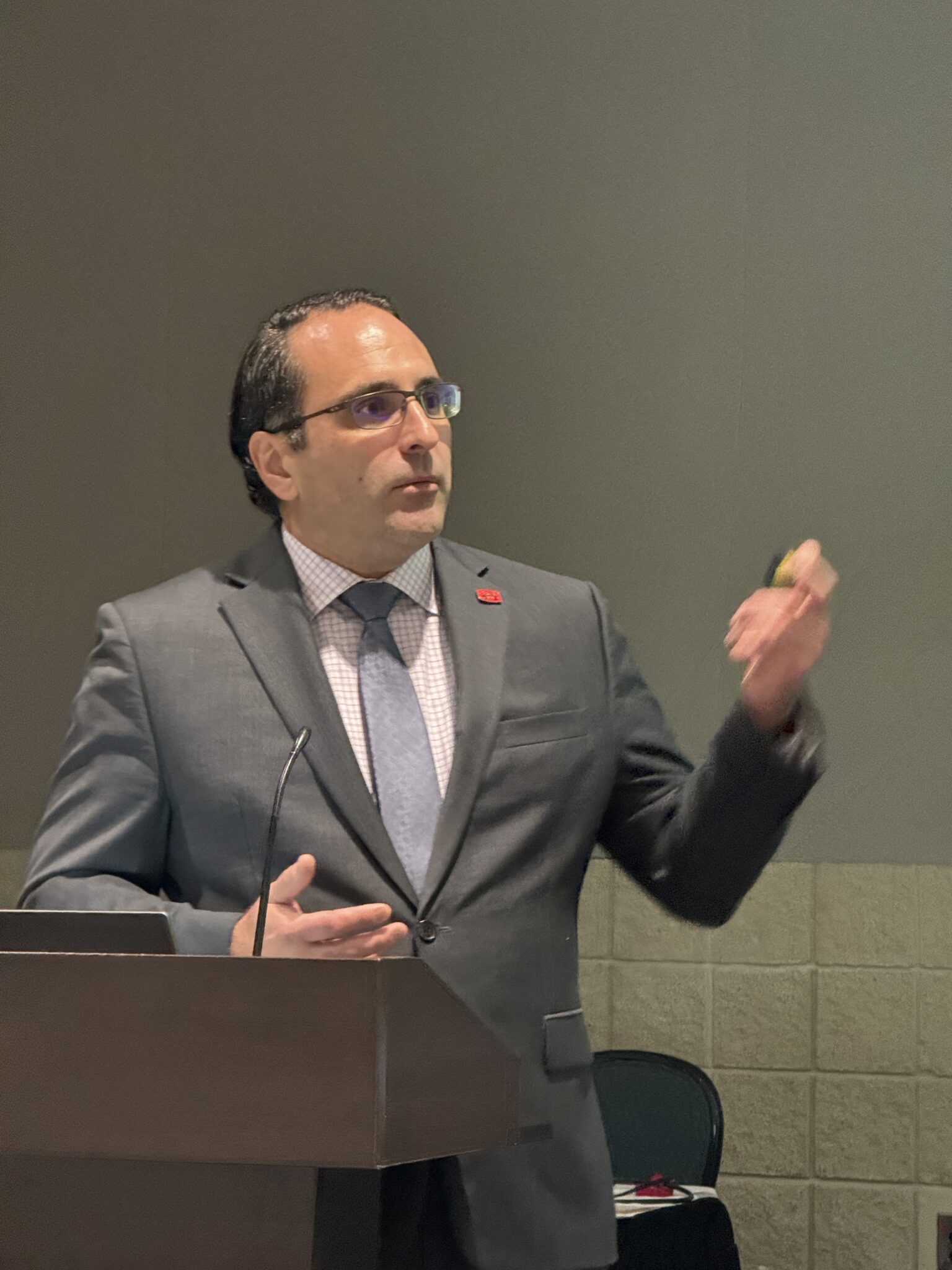
Mark Valentini
VALENTINI: A Republican Congress and administration will bode well on energy policy as PHCC members confront bans and restrictions on natural gas connections and appliances across the country. This will also bode well for tax policy as certain provisions in the Tax Cuts and Jobs Act of 2017 are set to expire which have been beneficial for many contractors, especially when considering Congress revisiting the corporate tax rate and potentially lowering it to 15% down from 21%.
MH: Does a more deregulated government mean more uphill battles for water/energy efficiency?
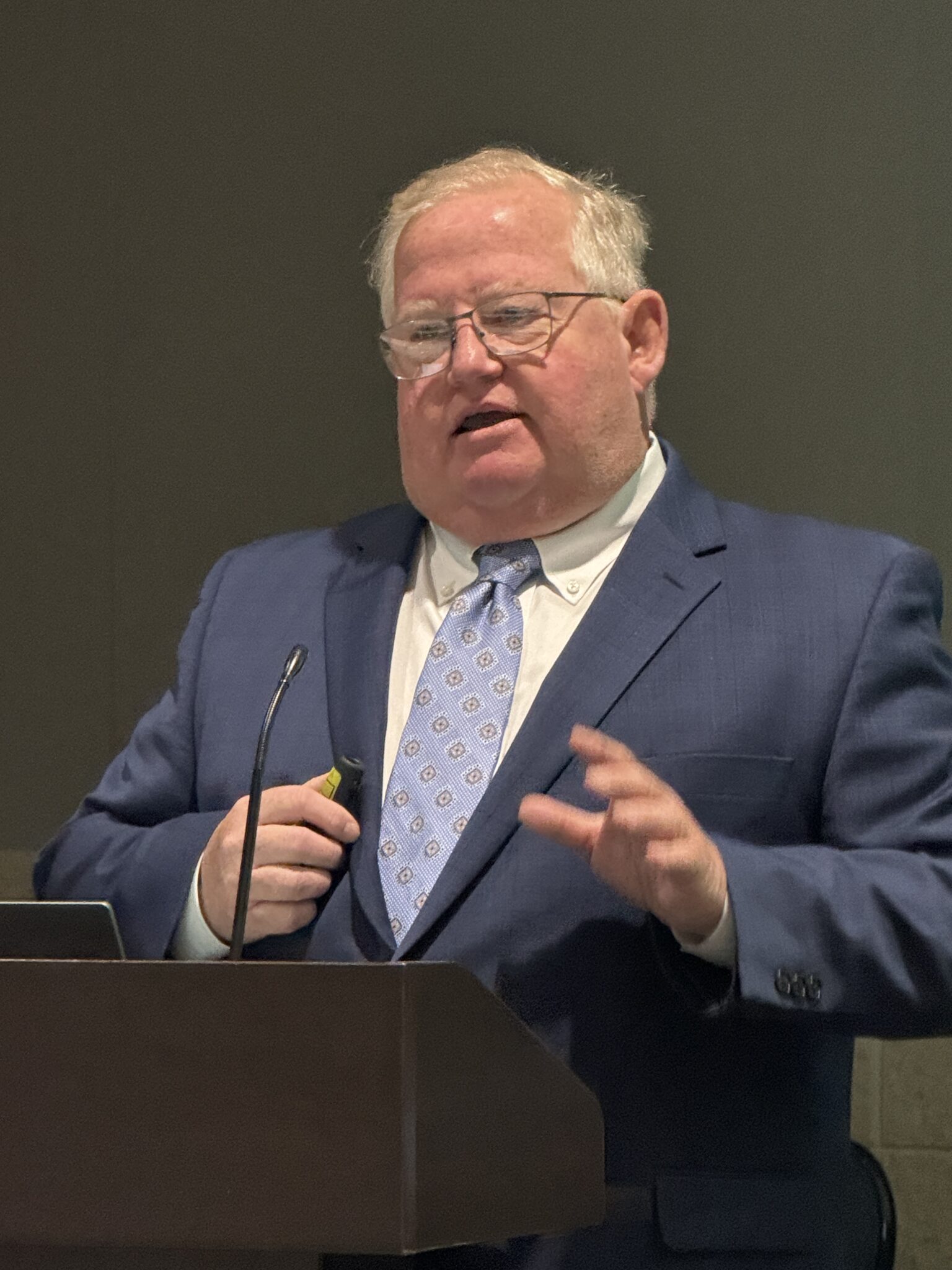
Charles White
WHITE: I think the previous Trump Administration showed us uphill battles when agencies were directed to create exempt categories like small cycle dishwashers and such. It is likely that the second Trump Administration will take these actions to the next level by moving to rewrite the underlying legislation. Having said that, the efficiency efforts will then move to the progressive states rather than being federal actions, we will probably not see much regression to less efficient standards and the high population states like California and New York will likely drive the industry to higher efficiency products.
MH: Do you think there may be changes to things like the Inflation Reduction Act or Infrastructure Bill or is that pretty much hands off at this point?
VALENTINI: It is rather early to tell, IIJA has been around for some time now and may be hard to change. The IRA has so many parts, that makes it hard to consider in one piece. Tax credits like Section 25c could be pretty safe but the HOMES and HEARS Acts may not be as safe since they represent almost $9 billion.
WHITE: Most of HOMES and HEARS programs have yet to roll out which could make them a prime target but since they have a low- and moderate-income focus, there may be an optics issue to remove those acts. The issues are complicated, but PHCC has been cautiously supportive of the IRA since much of that program flows to plumbing and HVAC contractors.
MH: What is the climate from your constituency? In other words, what are you hearing about this new election cycle—positivity, negativity or a wait and see approach?
VALENTINI: Positivity but also wait and see. PHCC must be vigilant on workforce policy as the new government may reconsider industry-recognized apprenticeships which risk watering-down training by compartmentalizing it into credentialing—contractors need skilled workers with a holistic skillset, not workers who are certified in a handful of specific tasks.
MH: How do interest rates come into play here?
VALENTINI: Lower interest rates bode well for real estate, which in turn bodes well for new construction, service, and remodeling work.
MH: From what I recall, Trump’s 1st term was pro-trades? Do you have any indication this will continue?
WHITE: While President Trump’s first term had support from the trade’s rank and file, the Industry Recognized Apprenticeship Rule received more negative public comments than perhaps any other rule. Those negative comments came overwhelmingly from those same rank and file workers. Polling data throughout the election shows that the President-elect enjoyed substantial support from skilled blue-collar workers, but his future actions must support their jobs in the workforce.
MH: Does anything change on the union front?
VALENTINI: That’s a sensitive question. I would venture to say that Teamsters and other labor groups that withheld endorsements are reading the room when it comes to their rank-and-file.
MH: Please give examples of any changes/addendums/eliminations to specific policies moving forward, if applicable. (i.e. Clean Water Act)
VALENTINI: We can expect to see legislation on tax reform and energy in the new Congress. Tight margins particularly in the House will require all Republicans to be on board to pass anything.
WHITE: It is possible that the new administration will review regulations that are currently in litigation, like the residential gas furnace rule, and perhaps decide to pull back those rules for revisions. This could also affect decisions on whether to appeal adverse court rulings such as the recent ruling against the DOL Overtime Rule.

https://vimeo.com/1043475838 Can you believe we made it to 2025? This week we’ll talk AHR, because don’t look now, we’re a month out from the biggest industry event of the year. We’ll also talk hoarders or a messy work areas in a customer’s home. And, of course, new podcasts, which drop every Tuesday. Weekly Links Read more
Can you believe we made it to 2025? This week we’ll talk AHR, because don’t look now, we’re a month out from the biggest industry event of the year. We’ll also talk hoarders or a messy work areas in a customer’s home. And, of course, new podcasts, which drop every Tuesday.
Weekly Links:
Solar-powered Evaporative Cooling
Solar-powered Evaporative Cooling Tower, Another Weapon in the Arsenal to Reduce Energy Costs
Heat Pump Water Heaters
When Hoarders Strike?
https://www.instagram.com/p/DENJ69YR7_U/
Podcasts
